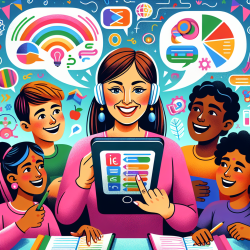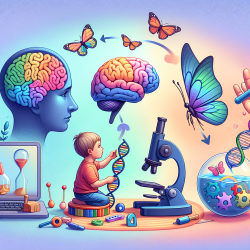In the ever-evolving field of special education, the integration of technology into language learning has opened new avenues for enhancing student engagement and learning outcomes. A prime example of this integration is found in the software review of "Language Carnival 1," a program designed to motivate students to explore, understand, explain, and practice language and thinking skills, with a particular focus on figurative language skills used in humor. This review, alongside others in the research paper, offers valuable insights into the application of technology in language development and provides a roadmap for practitioners looking to improve their skills or explore further research in this area.
Understanding "Language Carnival 1"
"Language Carnival 1" is an educational software aimed at intermediate students and higher-level language-impaired children who require assistance in developing metalinguistic skills. The program is structured around solving jokes and riddles, with multiple-choice answers that encourage students to think critically about language and its nuances. The engaging format of the program appears to be intrinsically motivating, allowing students to track their progress and strive for improvement.
However, the review also notes that the program's graphics may not captivate older or more sophisticated students, suggesting that while the software is effective, its appeal might be limited to a specific audience. Furthermore, the program's teaching value is somewhat diminished by the fact that only one out of the four games provides an explanation when an error is made, limiting the opportunity for self-directed learning among children working on their own.
Applying Research Insights to Practice
The insights from the review of "Language Carnival 1" and other software in the research paper can significantly inform practice in the following ways:
- Selection of Appropriate Educational Technology: Understanding the strengths and limitations of different educational software can guide practitioners in selecting tools that best meet their students' needs. For instance, "Language Carnival 1" would be a strong choice for students working on developing metalinguistic skills in a supervised setting.
- Customization and Adaptation: Recognizing that some programs may not provide explanations for incorrect answers, educators can supplement these tools with additional resources or direct instruction to enhance learning outcomes.
- Engagement Strategies: The review highlights the importance of engaging students through humor and interactive gameplay. Educators can incorporate these elements into their teaching strategies, regardless of whether technology is used.
- Research and Development: For those involved in the creation of educational technology, the review underscores the need for programs that are not only engaging but also provide comprehensive feedback to support self-directed learning.
Encouraging Further Research
The field of educational technology is ripe for further research, particularly in the development and evaluation of software that addresses the diverse needs of language learners. Future studies could explore the effectiveness of humor in language learning, the impact of feedback on student motivation and achievement, and the use of technology to support students with specific language impairments.
Additionally, there is a need for research that examines the long-term outcomes of using educational technology in language development. Such studies could provide deeper insights into how these tools can be effectively integrated into language learning curricula to support students with varying needs.
Conclusion
The review of "Language Carnival 1" within the broader research paper offers valuable insights for practitioners and researchers alike. By critically examining the strengths and limitations of educational software, educators can make informed decisions that enhance language learning experiences for their students. Moreover, the paper serves as a call to action for further research in this field, encouraging the development of innovative solutions that meet the evolving needs of language learners.
To read the original research paper, please follow this link: Language Carnival 1.










